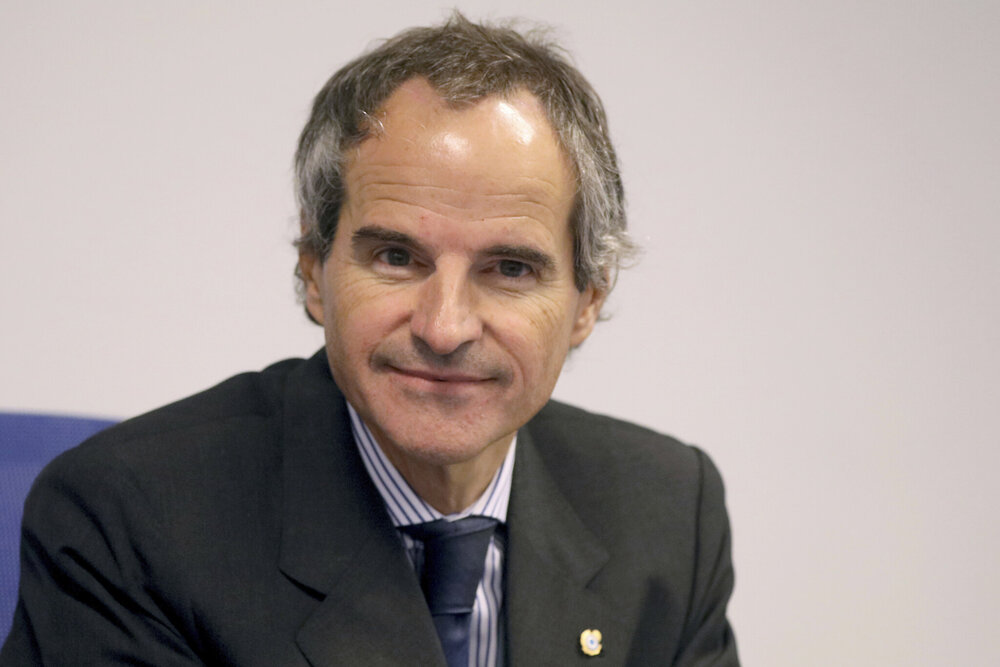Grossi says has no credible evidence Iran is developing nuclear weapon

TEHRAN — Rafael Grossi, director-general of the International Atomic Energy Agency (IAEA) who has expressed hope that he would travel to Tehran in the next few days, has said he has no “credible information” that Iran is seeking to build nuclear weapons.
Grossi, who went to Washington to meet with U.S. officials, told Bloomberg news network about the current situation regarding the Joint Comprehensive Plan of Action (JCPOA) and his intention to visit Iran in the next few days.
The director general said that he hopes to “be back in Tehran within a few days.”
Grossi told Bloomberg on Tuesday that there’s a new government in Iran, a government coming from a group that expresses very strong views about the nuclear program cooperation with international organizations like the IAEA, “so we need to adjust to each other like in any relationship.”
According to Bloomberg, Grossi’s visit will have two main goals.
He wants to see whether the new Iranian government and its president, Ebrahim Raisi, will follow through on a September agreement to allow IAEA inspectors to service surveillance equipment, and to try to push the Iranians back to the talks with European nations and the U.S. on rejoining the 2015 nuclear deal.
Grossi said that despite the delays, he still believes Iran wants to get back into the deal, though he said that time is running out to do so as its nuclear program continues to advance.
The director general emphasized he doesn’t have “any credible information” that Iran is seeking a nuclear weapon. Iran’s leaders have always insisted they don’t seek to build nuclear weapon.
A fatwa by Ayatollah Ali Khamenei, Leader of the Islamic Revolution, against proliferation and use of nuclear weapons dates back to the mid-1990s. The first public announcement was made in October 2003, followed by an official statement at a meeting of the International Atomic Energy Agency (IAEA) in Vienna in August 2005.
Ayatollah Khamenei has reiterated time and again that he fundamentally rejects nuclear weapons.
Grossi said that nobody is saying, “We are not going back to the negotiating table.”
“What every side is saying is what they expect, what they believe and as you know, in the case of Iran, there is a number of unmet expectations,” the UN nuclear watchdog chief remarked, confirming Iran’s position on the Vienna talks.
Iran’s deputy foreign minister, Ali Baqeri Kani is expected to travel to Brussels in the coming days to negotiate the “unmet expectations” of Iran with Enrique Mora, the European Union's deputy secretary general for political affairs.
The IAEA is a guarantor of the original JCPOA, which involved the U.S., Iran, Germany, France, the UK, Russia and China.
SA/PA
